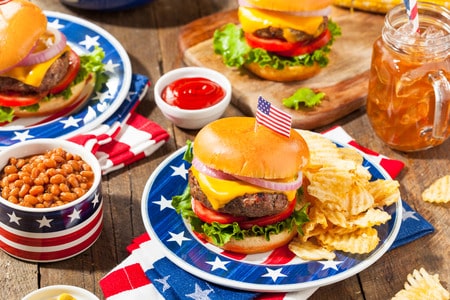Parents Confused by Childhood Obesity Issues

“It’s because of this.” “No, it’s because of that.” Every week someone has a new take on the cause of childhood obesity, or on what should be done about it. Consequently, parents sometimes just want to shut down and stop listening.
Why is childhood obesity such a tough nut to crack? For one thing, we all want a nice obvious vector between cause and effect, but this picture is a mess. Obesity is ubiquitous, and who can keep up with the constant flood of news about purported causes? There are so many ingredients in the multifactorial stew, a truly determined researcher could match up obesity with just about anything.
Can’t process any more information
To become educated about the putative origins of the obesity epidemic, eclectic knowledge is key. We need to study up on the ramifications of certain political agendas when applied to food policy. Just to understand the high fructose corn syrup problem, for example, a person has to learn about agricultural policy, farm subsidies, international trade agreements, and a whole lot of other complicated matters.
Can’t handle any more controversy
If food addiction turns out to be as real as alcohol or drug addiction, we have to grasp the far-reaching repercussions in such areas as health insurance and eligibility for government medical care programs. And once the discussion impinges on such areas as race and class, the atmosphere can become very polluted. Is it any wonder that parents turn away in despair, and spend their energy addressing other problems?
It’s so easy to do the wrong thing
Even the most concerned parents are caught in an unrelenting push-pull dynamic. For instance, numerous authorities recommend that children participate in team sports or other athletic pursuits. Parents are urged to make use of every opportunity to promote physical activity.
Then, along comes somebody like health and wellness writer Steve Garrett, to say:
Don’t continually try to get overweight kids to join a sports team. They may feel intimidated about their size already, so competing in a sport that they don’t like and don’t feel competent playing is counter productive.
In fact, parents are told, don’t draw a child’s attention to weight in any manner. In which case, it’s a little difficult to explain why we we are not having lunch at a fast-food joint, or why we must visit the doctor.
Obesity is the least of their worries
Is the kid shooting meth into his veins, or using the webcam to do something naughty? Is the kid refusing to go to church any more, or flunking out of school, or pregnant, or stealing cars? When a child is in any kind of immediate trouble, needing bail today or expecting a baby in five months, it is difficult to focus on the long-term risk of developing heart disease in 20 years.
Admittedly, compared to the obstacles and dilemmas that some parents cope with, obesity, and even the risk of food addiction, are pretty far down the list of things they lose sleep over. This laissez-faire attitude is of course very destructive. A 16-year-old girl once wrote to Dr. Pretlow’s Weigh2Rock website,
A teen who does drugs or smokes would get in trouble if their parents found out. But no one’s going to ground you for eating, which can be equally as damaging, and is equally as difficult to stop.
International food authority Jamie Oliver has been quoted as heavily blaming parents:
It’s harsh to say, but these parents, when they’ve been to the doctor and keep feeding their kids inappropriate food, that is child abuse. Same as a cigarette burn or a bruise.
Your responses and feedback are welcome!
Source: “Healthy Weight Loss For Kids,” EzineArticles.com, 04/24/10
Source: “Is Michelle Obama about to take on Big Food?,” Grist.org, 10/15/09
Photo credit: e-magic on Visualhunt/CC BY-ND










 FAQs and Media Requests:
FAQs and Media Requests: 











